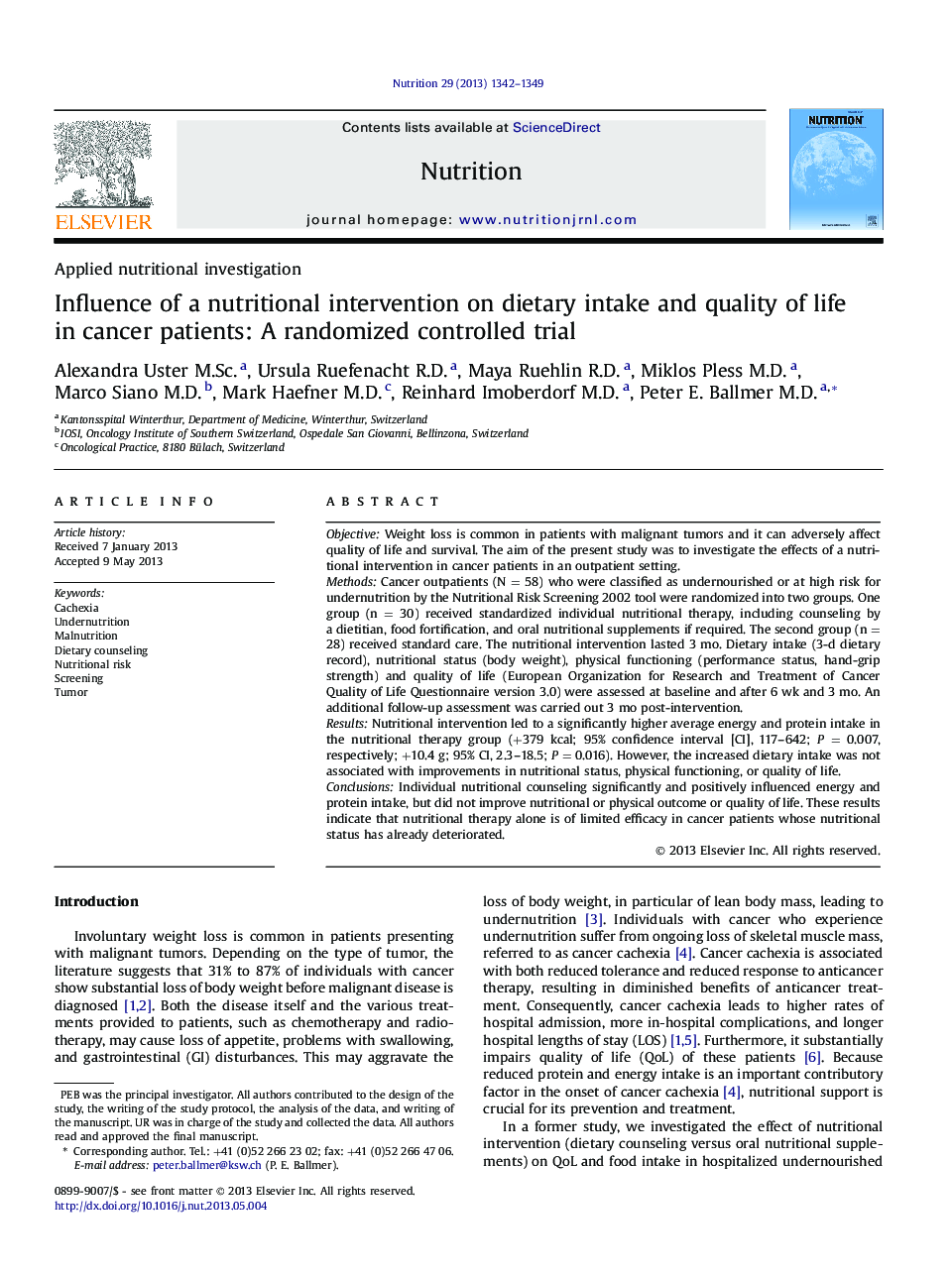| Article ID | Journal | Published Year | Pages | File Type |
|---|---|---|---|---|
| 6089995 | Nutrition | 2013 | 8 Pages |
ObjectiveWeight loss is common in patients with malignant tumors and it can adversely affect quality of life and survival. The aim of the present study was to investigate the effects of a nutritional intervention in cancer patients in an outpatient setting.MethodsCancer outpatients (N = 58) who were classified as undernourished or at high risk for undernutrition by the Nutritional Risk Screening 2002 tool were randomized into two groups. One group (n = 30) received standardized individual nutritional therapy, including counseling by a dietitian, food fortification, and oral nutritional supplements if required. The second group (n = 28) received standard care. The nutritional intervention lasted 3 mo. Dietary intake (3-d dietary record), nutritional status (body weight), physical functioning (performance status, hand-grip strength) and quality of life (European Organization for Research and Treatment of Cancer Quality of Life Questionnaire version 3.0) were assessed at baseline and after 6 wk and 3 mo. An additional follow-up assessment was carried out 3 mo post-intervention.ResultsNutritional intervention led to a significantly higher average energy and protein intake in the nutritional therapy group (+379 kcal; 95% confidence interval [CI], 117-642; P = 0.007, respectively; +10.4 g; 95% CI, 2.3-18.5; P = 0.016). However, the increased dietary intake was not associated with improvements in nutritional status, physical functioning, or quality of life.ConclusionsIndividual nutritional counseling significantly and positively influenced energy and protein intake, but did not improve nutritional or physical outcome or quality of life. These results indicate that nutritional therapy alone is of limited efficacy in cancer patients whose nutritional status has already deteriorated.
